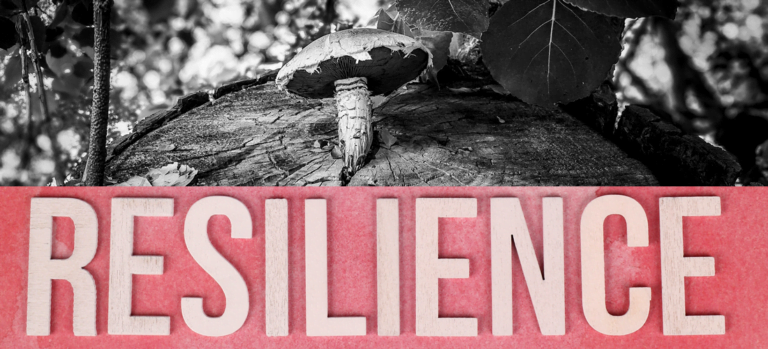Self-doubt can be a crippling barrier on the path to personal growth. It’s that nagging voice in the back of your mind, questioning your abilities, devaluing your achievements, and dampening your spirits. But what if you could silence that voice, or even convert it into a source of motivation? Welcome to our exploration of overcoming self-doubt, a crucial stepping stone in our journey of personal development. This blog post aims to delve into strategies to overcome self-doubt, fostering a mindset of confidence and resilience that propels us towards our objectives.
Strategies for Overcoming Self-Doubt
Overcoming self-doubt is a crucial step in personal growth and achieving your goals. Here are several strategies to help you combat self-doubt and build confidence:1
1. Develop a Growth Mindset
- Definition: A growth mindset is the belief that abilities and intelligence can be developed through dedication and hard work.
- How it Helps: Embracing a growth mindset helps you see challenges as opportunities for learning and growth rather than as threats to your abilities.
- Tips: Cultivate self-awareness, challenge fixed beliefs, and focus on the process rather than the outcome.
2. Challenge Negative Self-Talk
- Definition: Negative self-talk involves replacing self-critical and pessimistic thoughts with positive and constructive ones.
- How it Helps: It reframes your perception of yourself and your abilities, leading to increased self-confidence.
- Tips: Identify negative thoughts, challenge their validity, and replace them with affirmations or positive self-talk.
3. Set Realistic Goals and Celebrate Achievements
- Definition: Setting achievable goals and acknowledging your accomplishments, no matter how small, builds self-confidence.
- How it Helps: It provides a sense of progress and reinforces your belief in your abilities.
- Tips: Break larger goals into smaller, manageable steps, and celebrate each milestone you reach.
4. Seek Support and Feedback
- Definition: Receiving support from friends, mentors, or professionals can provide encouragement and constructive feedback.
- How it Helps: External perspectives can help challenge self-doubt and provide guidance for improvement.
- Tips: Surround yourself with a supportive network and actively seek feedback from trusted sources.
5. Practice Self-Compassion
- Definition: Self-compassion involves treating yourself with the same kindness and understanding that you would offer to a friend.
- How it Helps: It fosters self-acceptance and reduces the harsh self-judgment that fuels self-doubt.
- Tips: Practice self-compassionate self-talk and acknowledge that everyone makes mistakes and faces challenges.
6. Visualize Success
- Definition: Visualization involves imagining yourself succeeding in your goals and visualizing the steps to get there.
- How it Helps: Visualization can boost self-confidence by creating a mental image of success.
- Tips: Spend time each day visualizing your success and the steps required to achieve it.
7. Take Action Despite Doubt
- Definition: Act even when you’re feeling self-doubt. Action can lead to increased confidence.
- How it Helps: Proving to yourself that you can take action despite doubt can be empowering.
- Tips: Start with small steps, and gradually challenge yourself to take larger actions.
8. Keep a Positivity Journal
- Definition: Document your successes, compliments, and positive experiences in a journal.
- How it Helps: Reflecting on positive aspects of your life can counterbalance self-doubt.
- Tips: Make it a daily practice to write down at least one positive thing about yourself or your accomplishments.
9. Focus on Strengths and Accomplishments
- Definition: Concentrate on your strengths and past achievements to build self-confidence.
- How it Helps: Reminding yourself of what you’ve already accomplished reinforces your belief in your abilities.
- Tips: Create a list of your strengths and revisit your accomplishments regularly.
10. Professional Help
- Definition: Sometimes, self-doubt can be deeply ingrained and may require the assistance of a therapist or counselor.
- How it Helps: A professional can provide strategies and techniques tailored to your specific needs.
- Tips: Don’t hesitate to seek therapy or counseling if self-doubt is severely impacting your life and well-being.
Remember that overcoming self-doubt is a journey, and it may take time and effort. Combining multiple strategies and seeking support when needed can be especially effective in building confidence and pursuing personal growth.
Understanding Self-Doubt
Self-doubt is a mental state that revolves around a lack of confidence or feeling incapable of doing things you need to do. It is the inner voice that questions your abilities, skills, or value and often manifests as constant worry, indecision, a need for validation, perfectionism, or a fear of failure.
The roots and causes of self-doubt can be multifaceted. Often, they are rooted in experiences from our early childhood, where negative feedback or high expectations from those around us may lead us to question our abilities. Traumatic events, societal pressures, and constant comparison with others, particularly in today’s digital age, can also contribute to self-doubt. Additionally, certain personality traits such as being a perfectionist or having a high need for approval can make individuals more susceptible to self-doubt.
Self-doubt can significantly hinder personal growth by restricting an individual’s capacity to venture outside their comfort zone and seize opportunities. It often manifests as a debilitating fear of failure, which can stifle creativity, discourage initiative, and prevent the acquisition of new skills. Over time, this can lead to stagnation, with one remaining trapped in a cycle of self-imposed limitations. Moreover, self-doubt can erode self-esteem, leading to negative self-perception and a lack of confidence, which further impedes progress and development.
Recognizing the Signs of Self-Doubt
Self-doubt can manifest in various ways, and its symptoms may vary from person to person. However, common symptoms of self-doubt include:
- Negative Self-Talk: Constantly criticizing and doubting oneself through inner thoughts and self-criticism.
- Perfectionism: Setting unrealistically high standards for oneself and fearing failure or making mistakes.
- Procrastination: Delaying tasks or decisions due to fear of not being able to complete them perfectly.
- Imposter Syndrome: Feeling like a fraud or believing that one’s accomplishments are undeserved and a result of luck rather than skill.
- Seeking Constant Validation: Relying on external approval and validation from others to feel confident.
- Comparing Oneself to Others: Continuously measuring one’s worth against the achievements and qualities of others.
- Indecisiveness: Struggling to make decisions due to fear of making the wrong choice.
- Lack of Self-Assertion: Difficulty in expressing one’s needs, opinions, or boundaries in personal and professional settings.
- Overthinking: Analyzing situations excessively and being trapped in a cycle of doubt and uncertainty.
- Low Self-Esteem: Having a poor self-image and feeling unworthy or inferior.
- Fear of Criticism: Being overly sensitive to criticism or feedback, even if it is constructive.
- Negative Body Image: Experiencing dissatisfaction with one’s physical appearance and body image.
- Self-Sabotage: Engaging in self-destructive behaviors that hinder personal and professional growth.
- Difficulty Accepting Compliments: Feeling uncomfortable or disbelieving when receiving compliments or positive feedback.
- Over-apologizing: Frequently apologizing for perceived mistakes, even when not at fault.
- Defensive Behavior: Reacting defensively when receiving constructive criticism or feedback.
- Avoiding Responsibility: Blaming external factors or others for personal failures or shortcomings.
- Social Withdrawal: Isolating oneself from social interactions and opportunities due to self-doubt and insecurity.
It’s important to note that experiencing occasional self-doubt is normal, but when these symptoms persist and significantly hinder personal growth and well-being, it may be necessary to seek support and develop strategies for overcoming self-doubt.
The Consequences of Unchecked Self-Doubt
Self-doubt is a significant barrier to personal growth. It is a self-imposed limitation that hinders one’s ability to explore their full potential. When an individual is plagued with self-doubt, they may disregard their capabilities and underestimate their worth, leading to missed opportunities for advancement. They may hesitate to take on new challenges, fearing failure, and thus, stay cocooned within their comfort zone.
This lack of exploration and experimentation prevents the acquisition of new skills and knowledge. Overcoming self-doubt, therefore, is crucial for personal growth. It enables one to face challenges head-on, learn from failures, and continuously strive for improvement.
Self-doubt can lead to missed opportunities and regrets in numerous ways. The fear of failure often prevents individuals from taking risks, whether it be applying for a job, starting a new venture, or simply learning a new skill. This avoidance of potential failure, however, also negates the potential for success. An individual might pass up the chance to develop new competencies or to expand their network of connections, both of which could lead to further opportunities down the line.
Over time, the accumulation of these missed opportunities can result in regret. When individuals allow self-doubt to dictate their actions, they may look back and realize they missed out on valuable experiences and potential achievements. Ultimately, overcoming self-doubt is not just about personal growth, but also about living life to the fullest and avoiding the pitfall of regrets.
Cultivating Resilience
Resilience and self-doubt are intimately interconnected in the journey of personal growth. Self-doubt is a common human emotion that can permeate our thoughts and halt our progress. Yet, it is through resilience – the ability to bounce back from adversity – that we can confront and overcome this self-doubt. Resilience equips us with the mental toughness to challenge negative self-perceptions, understand that failure is a part of growth, and continue to strive towards our goals. Thus, by fostering resilience, we can turn self-doubt from an obstacle into a stepping stone on the path of personal development.
Bouncing back from setbacks is an integral part of overcoming self-doubt and fostering personal growth. Not every plan will unfold as expected, and at times, hurdles will seem insurmountable. However, it’s important to remember that these are temporary obstacles, not permanent barriers. When faced with a setback, take time to process the disappointment, but don’t let it dampen your resolve. Analyze what went wrong and consider what you could do differently next time.
This reflection isn’t meant to fuel self-criticism, but to pave the way for improvement and learning. Be open to seeking advice or feedback from supportive individuals in your network. Above all, remind yourself of your past successes and achievements. They testify to your ability to overcome challenges and should serve as a source of motivation during difficult times. Every setback is a setup for a comeback. Embrace them as opportunities for growth, not as markers of defeat.
Closing Thoughts on Overcoming Self-Doubt
Overcoming self-doubt is an integral step towards personal growth. Remember that each journey begins with a single step, and the first step to conquering self-doubt is acknowledging its existence. Embrace the truth that everyone has doubts and fears, but they do not define us. With patience, perseverance, and a compass of self-belief, we can navigate through the ocean of self-doubt towards the island of self-assurance. It is a journey worth undertaking, for on the other side lies the extraordinary version of you, waiting to be discovered. So, embark on this journey of personal growth today, for every step you take is a step away from doubt and a step closer to your true potential.








